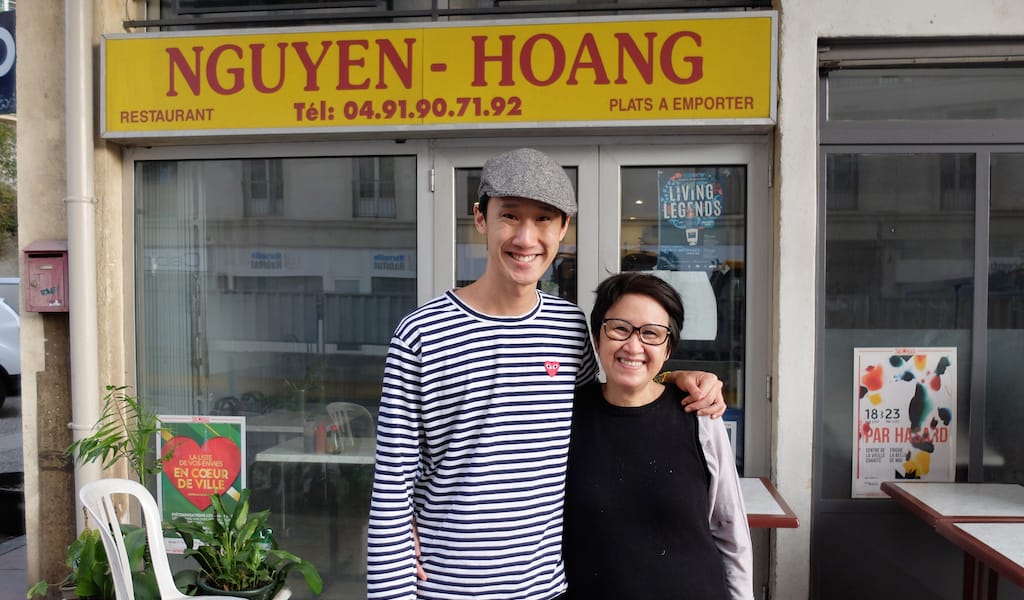My love affair with the Deserter’s Bazaar began in 2001 when I first wandered into the marketplace like a pie-eyed flower child on his very first acid trip. The air seethed with leaded exhaust, stinky cheese, stale body odor and the incessant honking of jalopies. Streets and sidewalks disappeared under tables and blankets displaying everything from village produce and contraband alcohol to Dostoevsky novels and wooden utensils. Shoulder-to-shoulder, people bumped and shuffled and haggled while sweaty men with cigarettes hanging from their lips parted the mass with iron push carts.
I returned to Georgia the next year and, as luck would have it, shacked up with a friend a block away from the market, which became my playground. Six somewhat square blocks selling anything you could put a tag on. “In the 90s, the only people who came here at night were bandits with Kalashnikovs,” my housemate said. Our Georgian friends tolerated my bazaar fetish with raised brows and crooked smiles, whispering behind the back of their hands, “crazy foreigner.” To them, the anarchy I found so seductive was a loathsome ordeal and daily reminder of their country’s ills. Only a fool would love to shop among the chaos, pickpockets and vermin.
The 2003 Rose Revolution began a period of wide-ranging reforms, which for the bazaar meant clearing the sidewalks and streets of the vendors and putting them into newly built kiosks. Overnight, the hole-in-the-wall chebureki joints disappeared – those delicious drip-greasy minced meat fried pies are now only lip- licking memories. Settled into its post-Rose Revolution groove, the Deserter’s Bazaar makes most of its bread and butter from Tbilisi’s restaurants, as supermarkets have snatched away the average consumer. Cheese traders have told me that they have lost some 60 percent of business in the past decade.
When the Covid-19 lockdown began, I went to the bazaar to stock up before hightailing it to the village. It was business as usual: Vendors licked their fingers to separate plastic bags, shook hands with clients and shared shot glasses of hooch with their comrades. Although all agrarian markets closed shortly after my last visit in March, the “new” building, which is normally empty, accommodated retailers throughout the duration. Tina Nugzarashvili, 63, my go-to tkemali maker, could have kept her stall open, had the pandemic not forced the government to halt public transportation. Tina lives in Varketili, a suburb 40 minutes away by metro. When the transportation ban was lifted on May 29, Tina returned to a bazaar that had very few shoppers.
“Nobody is coming,” she said, gesturing at the relatively deserted space with her hand. She has added souvenirs to her display of jams, spices, sauces and dried fruits, but there haven’t been tourists here in three months, and it’s unclear how many will come when flights resume on July 1. Tina showed me the new plastic caps on her bottles of tkemali, a new health regulation imposed during corona time, along with labels on spice bags.
“Nobody is coming,” she said, gesturing at the relatively deserted space with her hand.
The main produce section outside has been divided with security fence panels to help manage foot traffic. With so few shoppers, is too early to judge how strictly crowd control rules will be enforced. People were quite lax with social distancing and their facemasks, wearing them under their chins, on their foreheads, and sometimes only over their mouths. Yet, when the moment demanded – like when I pointed my camera – merchants were quick to strap up properly. Parliament is getting ready to pass a law that will fine people 20 lari ($7) for not wearing masks in public, so we should expect more mask diligence from the citizenry, even at the bazaar.
Zura Kakaladze was wearing his mask and didn’t recognize me under mine. Zura has a stall with cured, rock-hard Rachan ham hanging from a nail and recycled plastic bottles full of what he passes off as “Kvanchkara” wine, which would be better in a goulash or Greek meatballs than in a wine or water glass. He pointed to all the new tin roofs over the stalls, which have replaced the decaying tarps and beer umbrellas that were here before. “I had to pay 220 lari ($72) for it,” Zura said.
“The city made you pay for it, during the pandemic?” I wanted to make sure I heard him clearly. Even those who never shut down their stalls saw very little business over the past few months.
“I paid 250 for mine,” Giorgi, his neighbor said.
Luiza, my spice source, took a ten-day break during the pandemic and is now back at her stall grinding spices for her special blends. She, like everyone I talked to, is expecting business to bounce back now that all restaurants are permitted to reopen. Behind Luiza’s stall is the sordid drink grotto where a few cents will get you a beer mug of wine or a shot of moonshine. There were rumors the section would be permanently closed for its unhygienic conditions (even before the pandemic I would bring my own paper cups here), but Lia, my barmaid, was all smiles. She said the only restrictions are on the complimentary snack chasers, which is excellent news, as nothing looked more welcoming to botulism than the little bowls of wilting fruits, pickles and sour cabbage, and crusty tkemali for the stale white bread. The Styrofoam-like puff things, however, could survive a nuclear holocaust. “But I have these,” she winked, pulling a plate of sliced cucumbers from under her bar.
Business was slow upstairs in the Central Bazaar building – only half of the merchants were there. Gia Ismailov, my nadugi cheese guy, said the building was closed for a couple weeks for disinfection. It felt as if everyone who was there had nothing better to do but to gamble on breaking even. Aliev, the halal butcher wasn’t there, which was probably for the best as his “halalism” does not extend to drink, and he makes it impossible to decline a cognac, not just because of his sharp knife. I stocked up on meaty walnuts from Alex, my nut guy, and bought a fat stick of basturma from Maria, my go-to vendor for cured meat.
On the way out, Soso Mghvdliashvili, one of the honey men, stopped me with a sticky grin and equally tacky grip on my shoulder. “Don’t buy honey from him,” he said, pointing his thumb at his competitor Ilya, who was snoozing head down on his table. I hadn’t heard Soso’s refrain since March. These guys have worked side-by-side every day for years, bandying over clients during civil war, economic collapse, revolution, a Russian invasion and now a global pandemic. “He’s an asshole,” Soso added. Thankfully, some things never change.
Published on June 17, 2020

















































